Sep 3, 2025 12:02 PM
Keeping the Flame at Van Gelder Studio
On the last Sunday of 2024, in the control room of Van Gelder Studio, Don and Maureen Sickler, co-owners since Rudy Van…
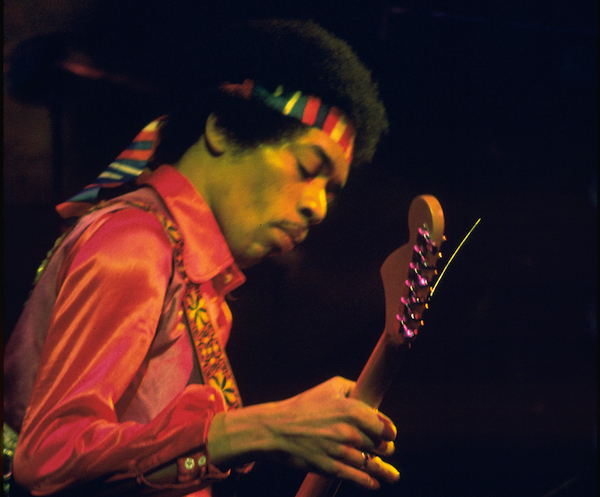
Jimi Hendrix’s performances on Dec. 31, 1969, and Jan. 1, 1970, at the Fillmore East in New York rank as a unique moment in the guitarist’s career.
(Photo: Allan Herr/MoPOP/Authentic Hendrix, LLC)For a generation of African-American guitarists growing up in the ’60s, Jimi Hendrix’s was revelatory. The album, which intro-duced the guitarist’s new trio with bassist Billy Cox and drummer Buddy Miles, reached the Top 10 on the Billboard album chart.
Hugely influential for Black Rock Coalition co-founders Greg Tate and Vernon Reid, as well as Parliament/Funkadelic guitarist Eddie Hazel, this intense cauldron of heavy-duty, rolling funk-rock deeply rooted in African-American cultural history—a mix of gospel, spirituals, Delta blues and r&b—also had a significant impact on guitarists like Ernie Isley and Lenny Kravitz.
Reid, who helped found Living Colour, recently recalled hearing the 1970 album for the first time: “It was a mind-altering experience. Fascinating, terrifying, beautiful, funky, incendiary ... it was all these different things. Buddy’s incredible pocket; he’s really holding it down. And the sound of Billy’s bass is so meaty and so crucial to the whole thing working. And what’s amazing is, it’s all happening in real time. Those three guys ... they became more than three in that concert.”
The appeal of Band Of Gypsys touched more than just six-stringers. Saxophonist Branford Marsalis called it “earth-shattering,” citing the freedom and imposing groove supplied by Cox and Miles as a compelling factor. “At the time, I didn’t know why it spoke to me, but it did, immediately,” he said. “Now, I dug the [Jimi Hendrix] Experience, believe me. But Band of Gypsys affected me in a much more powerful way. The shit was just funky, the way Led Zeppelin was funky and the way The Beatles had a little groove to their shit, too. But those two groups never could get their bottom to have that funky-ass, stank groove the way the Band of Gypsys did.”
Originally released as a six-song LP on March 25, 1970, Band Of Gypsys was the fourth and final Hendrix album released before his death six months later. The six tracks were culled from performances recorded during two days at promoter Bill Graham’s Manhattan venue, Fillmore East, as New Year’s Eve 1969 turned into New Year’s Day 1970. About 50 years later, Legacy Recordings, in collaboration with Experience Hendrix L.L.C., has released Songs For Groovy Children: The Fillmore East Concerts, which comes in a five-CD or eight-LP package.
It documents all four sets the band played (a total of 43 tracks, presented in chronological order). The compilation includes eight previously unreleased tracks, four songs now presented in a longer, unedited form, and several that are back in print on CD/LP for the first time in a decade.
The collection includes reworked versions of “Foxey Lady,” “Fire,” “Hey Joe” and “Purple Haze”—all from Hendrix’s 1967 studio debut, Are You Experienced—along with two renditions of “Stone Free” and premieres of Band of Gypys tunes like “Who Knows,” “Message To Love,” “Power Of Soul” and the extraordinary Vietnam War protest song “Machine Gun.”
Songs For Groovy Children also includes freshly written Hendrix originals like “Earth Blues,” “Stepping Stone,” “Ezy Ryder,” “Burning Desire,” “Lover Man” and “Izabella,” as well as a frighteningly intense reading of his Delta blues-flavored “Hear My Train A Comin’,” extended slow blues jams on Elmore James’ “Bleeding Heart” and Jimmy Hughes’ “Steal Away,” plus a dynamic interpretation of Howard Tate’s r&b hit “Stop.”
“Band Of Gypsys was a strong statement from three brothers,” Miles, who died in 2008, said in an Experience Hendrix video. “Our music was a wide, wide spectrum—you had rockers, you had r&b and you most definitely had blues. When we did ‘Machine Gun,’ it was really taken from Delta blues and rural blues. That particular song was definitely not Chicago blues style; it was from the Deep South.”
But the backstory to the triumphant Fillmore East concerts reveals an artist awash in troubles. By July 1969, the Jimi Hendrix Experience—the guitarist’s trio with bassist Noel Redding and drummer Mitch Mitchell—had broken up. Redding left the trio, returning to England to front his own group, Fat Mattress, while Mitchell joined Jack Bruce & Friends.
With a dwindling cash flow and huge bills mounting from the construction of his Electric Lady Studios in the heart of Greenwich Village, Hendrix was feeling a financial squeeze.
“Jimi’s life had taken him to a place where the studio was a big expenditure,” said Hendrix archivist and author John McDermott, who co-produced Songs For Groovy Children. “Due to litigation he was involved in at the time, his royalties had been frozen both here and abroad. So, when the band stopped touring at the end of June 1969—other than the Woodstock show—there was no money coming in.”
The litigation was the result of a claim made by Ed Chalpin, who was suing Hendrix, Warner-Reprise Records and Jimi’s manager, Michael Jeffery, for breach of contract. Hendrix previously had signed a contract (for $1 and the promise of 1-percent royalties on all records he made) with Chalpin’s PPX Enterprises on Oct. 15, 1965, when the guitarist was a little-known sideman for Chalpin’s client Curtis Knight & The Squires. The contract bound Hendrix “to produce and play and/or sing exclusively for PPX Enterprises” for three years from the date of the signing.
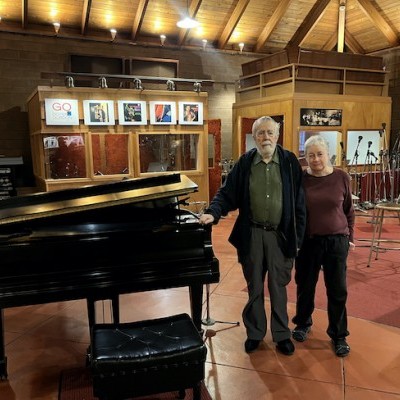
Don and Maureen Sickler serve as the keepers of engineer Rudy Van Gelder’s flame at Van Gelder Studio, perhaps the most famous recording studio in jazz history.
Sep 3, 2025 12:02 PM
On the last Sunday of 2024, in the control room of Van Gelder Studio, Don and Maureen Sickler, co-owners since Rudy Van…
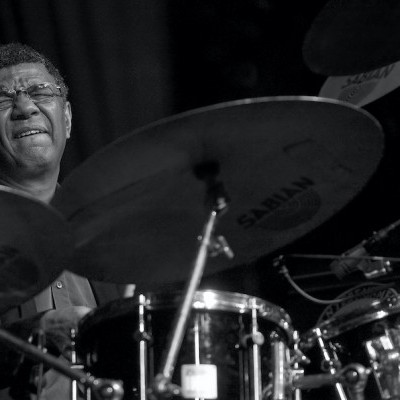
Jack DeJohnette boasted a musical resume that was as long as it was fearsome.
Oct 28, 2025 10:47 AM
Jack DeJohnette, a bold and resourceful drummer and NEA Jazz Master who forged a unique vocabulary on the kit over his…
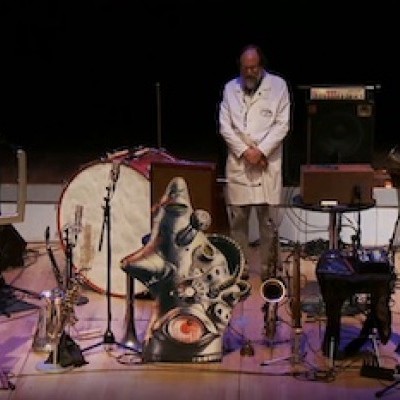
Trio aRT with its avalanche of instrumentation: from left, Pheeroan akLaff, Scott Robinson and Julian Thayer.
Sep 3, 2025 12:03 PM
Trio aRT, a working unit since 1988, shockingly released its very first studio recording this summer. Recorded in…
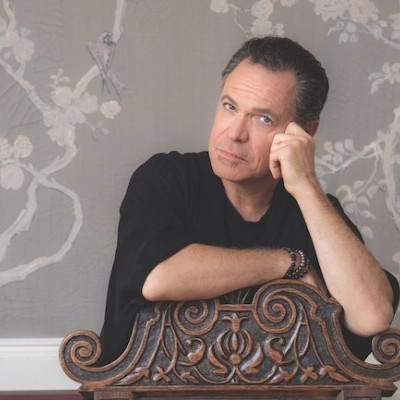
“Think of all the creative people I’m going to meet and a whole other way of thinking about music and a challenge of singing completely different material than I would have sung otherwise to my highest level in dedication to the moment,” Elling says about his Broadway run.
Sep 9, 2025 1:18 PM
Kurt Elling was back at home in Chicago, grabbing some family time in a late-June window between gigs. Sporting a smile…
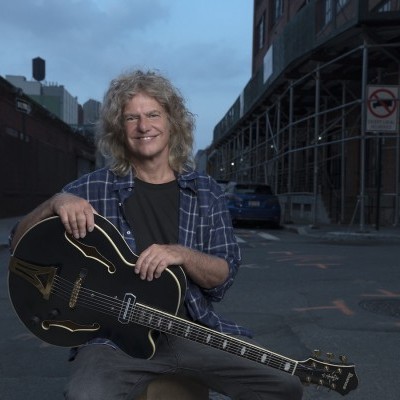
Pat Metheny will perform with his Side-Eye III ensemble at Big Ears 2026 in Knoxville, Tennessee, next March.
Sep 9, 2025 12:19 PM
Big Ears has announced the lineup for its 2026 festival, which will take place March 26–29 and include 250…